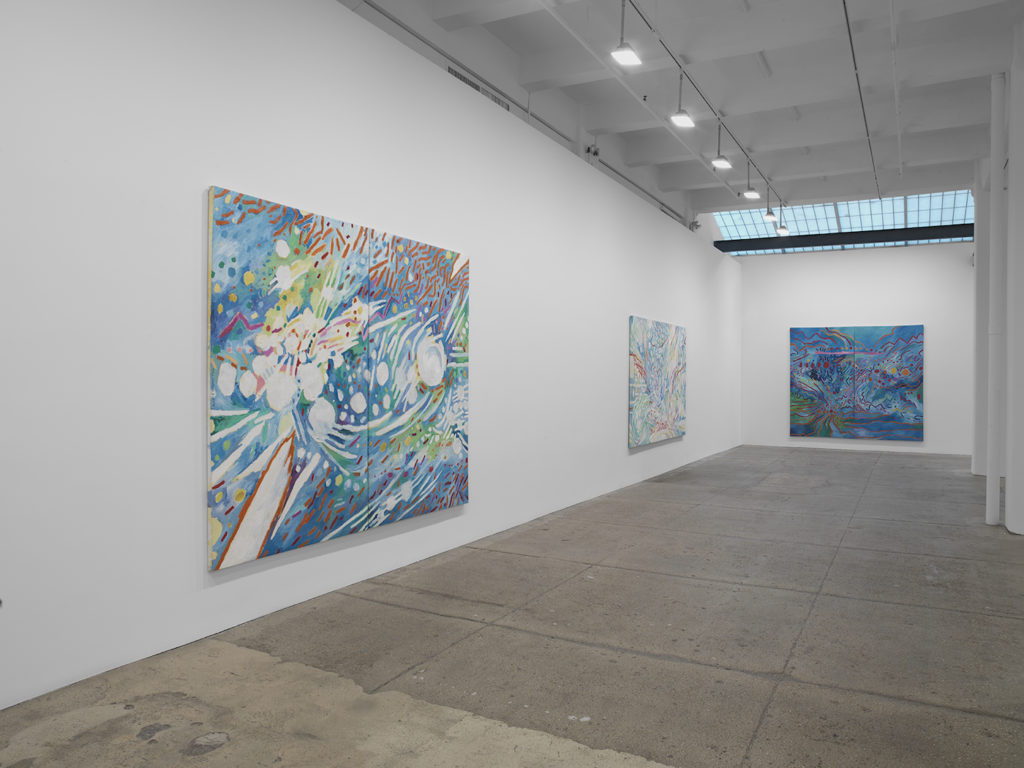You should have answered the phone! I want to hear more from mom, that’s amazing! Growing up, given you didn’t have a lot of access to traditional art, did you always know you wanted to be an artist? Or was that something you found through the process of making?
No, I was super late to the game. Looking at it now, it’s like, how did I not know? But I think I didn’t have examples. I didn’t even know that it was a possibility, in terms of building a life around something that I love to do.
I was always kind of painting and drawing, but I wasn’t really one of those kids that were like, “I knew I was going to be an artist.” I had so many different interests. I played soccer in high school and I tore my ACL in my junior year. That was the first time that I started painting. Then in college, I majored in culture and communication, so it was an interdisciplinary major with anthropology and sociology, and politics. But I just kept on taking art classes because I really loved them. It wasn’t until my senior year that I had a conversation with a professor and asked, “What should I take my last semester?” And she was, like, “Oh, you need to take yourself more seriously. Have you considered grad school?” And as soon as she gave me permission to see myself, it changed everything. As soon as I started painting, there was just no other way to be in the world. But it was wild, because it came very personally first, and then it’s been a lot of world-building and understanding the world of art. It feels really backward, and sometimes I still have impostor syndrome, where I’m like, “Oh, I didn’t know when I was seven that this was what I was going to do!” But now that I’m here, I’m so glad that I had all of those different formative experiences and ways of thinking, ways of being critical, ways of connecting to people, ways of understanding, and writing. I think that’s what made the work what it is.
I love what you just said about “permission to see myself.” It does often feel when there is someone we adore, or who is a mentor, or we highly respect, that they play this “awareness” role. It goes back to community. They give you that understanding that what you may not have seen has been there all along.
Yeah, completely. And I’m so grateful. Now I teach and I take the role so seriously. For me, personally, I know so many people have these stories, so you have a lot of power as an educator, to be really thoughtful, and to take that responsibility seriously!
What are the things that are influencing you right now?
I’m developing a new body of work for a show with Hashimoto Contemporary in New York. It’s been really all-consuming for the last few months. The catalyst was this book called Einstein’s Dreams by Alan Lightman. It’s a book of short stories where each story is a world in which time exists in a different way. It’s so magical. I read it in college, and it was one of those before-and-after books.
I was thinking about this one story in particular, where time is shaped in such a way that you only live for one rotation of the light. So if you’re born in the morning, you live 24 hours worth of light—but you live a full lifetime. And I was also thinking about Plato’s “Allegory of the Cave”, one of his writings, where there’s a group of people who are chained in a cave and can only stare at the wall ahead of them. So, they can only know the world through shadows and only through projections of the world happening behind them. One person escapes and sees the world in real life, so there’s the experience of “What is knowledge? What is truth?”
There’s also a forever favorite, Italo Calvino. He has a collection of short stories called Cosmicomics, that start with some scientific facts about the origins of the universe. But then he goes on to write this bizarre magical, fictionalized short story about the origin of the universe. So, in thinking about those things, this body of work is two communities of women—one who was born in the night and one who was born in the light, and they’re trying to record the life that they know. They’re chasing shadows, they’re measuring the tides, they’re observing the sensory experience of trying to understand the light because it’s leaving and going to pass on soon.
This feature was originally published in our Winter 2023 Quarterly, available here.



